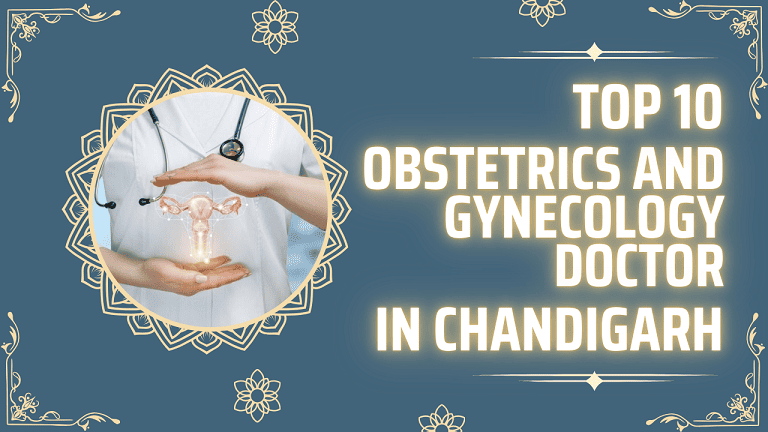Top 10 Obstetrics and Gynecology Doctor in Chandigarh
FAQ
Scope of obstetrics and gynecology:
OB/GYNs specialize in women’s reproductive health and address various issues. They evaluate and treat conditions such as infertility, abnormal bleeding, uterine fibroids, pelvic masses, organ prolapse, abnormal Pap smears, pelvic pain, endometriosis, breast disorders, and urinary incontinence. Their comprehensive care covers all aspects of female reproductive health, from routine check-ups to complex surgical procedures, ensuring women’s well-being throughout their lives.
Gynecologist vs. obstetrician:
While both specialize in women’s health, their focus differs. Obstetricians primarily handle pregnancy, childbirth, and postpartum care, including fertility treatments and premature baby care in NICUs. Gynecologists, on the other hand, focus on overall reproductive health, addressing issues unrelated to pregnancy. Many practitioners combine both specialties as OB/GYNs, offering comprehensive care throughout a woman’s life, from adolescence through menopause.
Obstetrics & Gynecology Specialist:
An OB/GYN is a medical doctor specializing in obstetrics and gynaecology. They combine two crucial disciplines to provide comprehensive care for women’s reproductive health. Gynecology focuses on the female reproductive system’s health and function, while obstetrics deals with pregnancy, childbirth, and postpartum care. This dual specialization allows OB/GYNs to offer continuous, specialized care throughout a woman’s life, addressing all aspects of reproductive health.
Gynecologist’s role:
A gynecologist specializes in women’s reproductive health, providing preventive and curative care. They perform routine check-ups, breast exams, and screenings for STIs and cancers. Gynecologists diagnose and treat various conditions affecting the reproductive system, including menstrual disorders, infections, and hormonal imbalances. They also offer guidance on contraception, fertility, and menopause, ensuring comprehensive care for women’s reproductive well-being throughout their lives.
Importance of obstetrics and gynecology:
Obstetrics and gynecology play a crucial role in women’s health. Obstetricians provide essential prenatal and postnatal care, ensuring healthy pregnancies and safe deliveries. Gynecologists offer comprehensive reproductive health screenings and treatments, enabling early detection and intervention for various conditions. This specialized care empowers women to proactively manage their reproductive health, addressing concerns from puberty through menopause and beyond, ultimately improving the overall quality of life.
Pregnancy tests by gynecologists:
Gynecologists use two primary methods to confirm pregnancy: urine tests and blood tests. Like home pregnancy tests, urine tests can be conducted in the doctor’s office for quick results. Blood tests, which must be performed in a medical setting, are more sensitive and can detect pregnancy earlier. They also measure hCG levels, providing additional information about the pregnancy’s progress and potential complications.
Symptoms of gynecological problems:
Common signs of gynecological issues include pelvic pain or pressure distinct from menstrual cramps, genital itching, burning, swelling, or soreness, and unusual vaginal discharge with odd odour or colour. Other symptoms may involve sores or lumps in the genital area, irregular menstrual cycles, painful intercourse, or urinary problems. If experiencing these symptoms, it’s essential to consult a gynecologist for proper diagnosis and treatment.
Serious gynecological problems:
Severe gynecological issues often manifest as intense pelvic pain, unusually heavy or prolonged menstrual bleeding, or bleeding between periods or during intercourse. These symptoms may indicate endometriosis, fibroids, or reproductive cancers. Persistent pelvic pain, sudden changes in menstrual patterns, or any unusual symptoms should prompt immediate consultation with a gynecologist to rule out severe underlying conditions and ensure timely treatment.
Uterus not suitable for pregnancy:
A bicornuate uterus, a rare congenital malformation, can complicate pregnancy. This heart-shaped uterus, resulting from incomplete fusion of Müllerian ducts during fetal development, is associated with increased risks of recurrent miscarriage and preterm labour. While many women with this condition can have successful pregnancies, they often require close monitoring and specialized care to manage potential complications and improve outcomes.
Drugs used in obstetric emergencies:
Oxytocin is crucial in obstetric emergencies, particularly for managing postpartum haemorrhage. It stimulates rhythmic uterine contractions, increasing myometrial tone to control bleeding. Oxytocin also has vasopressive and antidiuretic effects. In emergencies, it’s administered to induce or augment labour, prevent postpartum bleeding, or treat active haemorrhage. Proper dosage and monitoring are essential to ensure its safe and effective use in critical situations.



